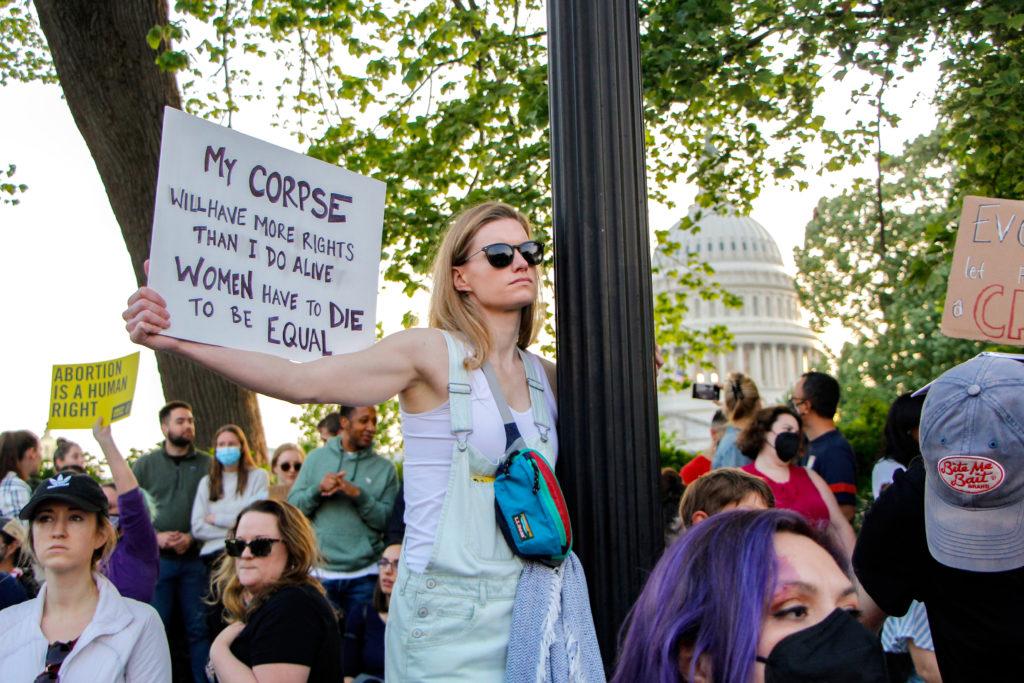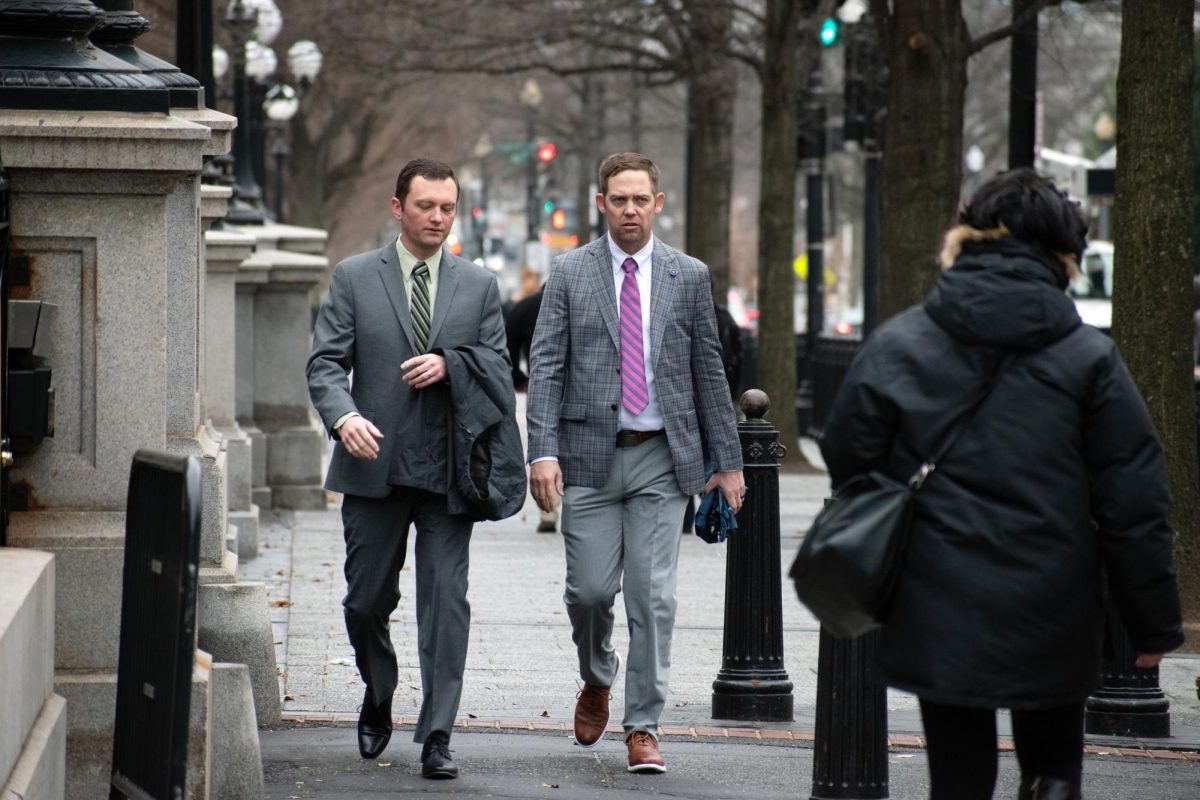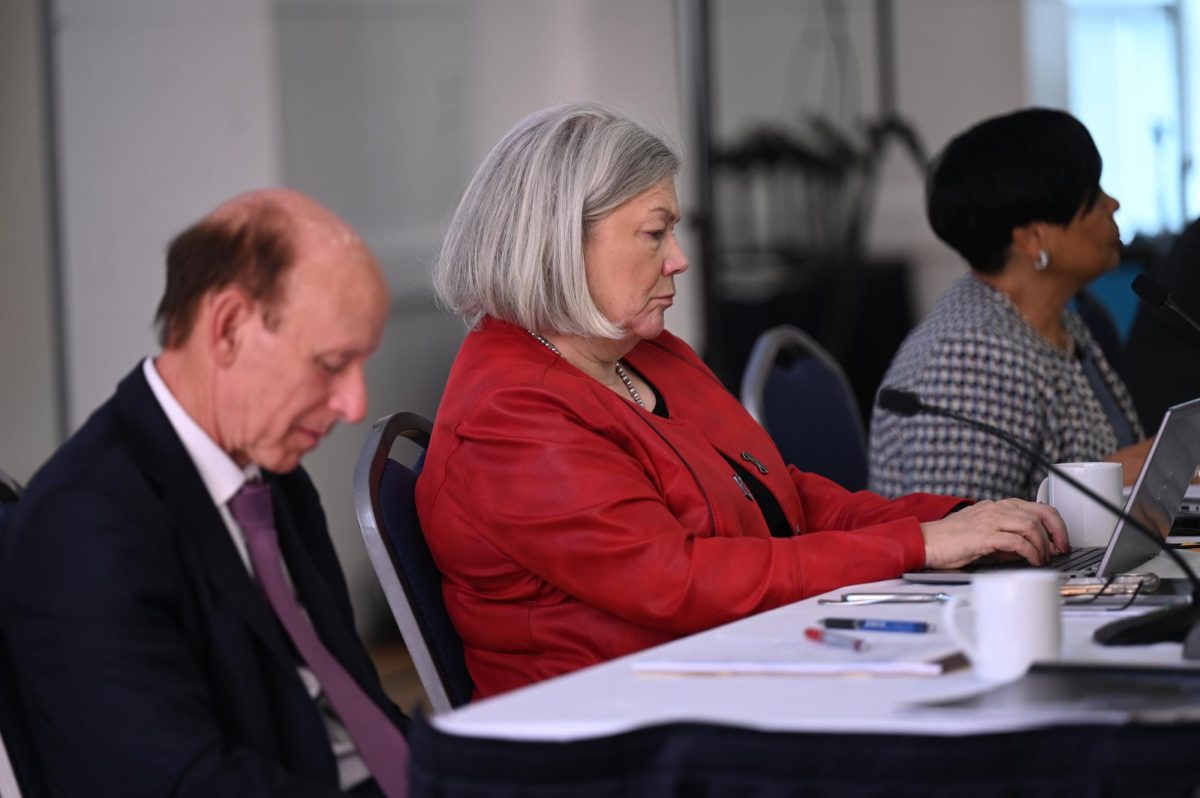In a city that lacks the authority to enact its own abortion protections without statehood, D.C. officials are calling on Congress to codify a potentially soon-to-be overturned Roe v. Wade decision before federal lawmakers can restrict the right to choose.
After POLITICO leaked a majority draft opinion revealing that the Supreme Court voted to strike down Roe v. Wade – a move that would eliminate nearly five decades of federal abortion protections – elected officials have issued statements while hundreds of local activists have taken to the streets in protest to demand that Congress protect a legislatively vulnerable D.C. The calls to Congress to keep abortion legal have combined with advocacy for D.C. statehood, which would end a history in which the city has been subject to federal oversight that can circumvent the city’s self-governance.
Mayor Muriel Bowser said she worked with Del. Eleanor Holmes Norton, D-DC, and members of the D.C. Council to issue a plea to Congress in support of codifying Roe v. Wade Tuesday in an effort to guarantee future abortion access for the whole country. Bowser and other city officials gathered with doctors and nurses in a Tuesday press conference at Planned Parenthood to make their demands.
“We cannot leave our children, our girls, a less free society than the one we were born into,” Bowser said at a press conference Tuesday. “We cannot build a society where our girls look to other, freer nations and wonder why they can’t have the same rights.”
Bowser said the stakes for abortion access in D.C. are “higher” than elsewhere because even if the courts allow states to decide their own abortion policy, the ruling won’t apply in the District because of its lack of statehood. If Roe v. Wade is struck down, federal lawmakers have ultimate control over the legality of abortion in the District, meaning a Republican-controlled Congress could limit abortion rights in the city.
She said the District remains a “pro-choice” city regardless of any future Supreme Court ruling, and she will work to protect that belief.
“Women still have access to care in D.C.,” Bowser said. “We are ready to stand shoulder-to-shoulder with the hundreds of millions of Americans who share this value and share it deeply and are willing to fight for it and willing to protect it.”
Bowser said government interference in health care has had past consequences in D.C., pointing to the drastic drop of HIV cases in the District in 2007 after Democrats gained control of the House and reversed previous legislation that prohibited funding needle exchange programs in the city with local tax money.
“We have seen before what happens when Congress intervenes in our ability to provide health care,” Bowser said. “That tells us what we already know – the government shouldn’t be in the business of blocking access to health care.”
Brooke Pinto – the D.C. Council member for Ward 2, which encompasses Foggy Bottom – said in a press conference last Tuesday that local government representatives in the District have pushed for accessible reproductive health care in recent years. The D.C. Council unanimously passed a bill in January that Pinto introduced, requiring schools in the District to provide free menstrual products for students.
Pinto said she is “moved” to have Norton as a D.C. representative in Congress, a female mayor and a majority-female D.C. Council, but future efforts to expand accessible reproductive health care must focus on states where Roe v. Wade’s reversal is most likely to have an effect on access to abortions, like Texas and Missouri.
“I am thinking about the woman and child in Texas, in Missouri and states across the country who, even if we can welcome them here with open arms, will never be able to make it here and never be able to afford to get here,” Pinto said.
Norton said in a release Wednesday that she is “horrified” by the Supreme Court’s draft order, and Congress must immediately codify the right to abortion. She said D.C. is caught in “special peril” without statehood and authority to set its own abortion protections, serving as a reminder of the city’s vulnerability to decisions from Congress, no matter how opposed city voters may be to its legislation.
Norton said Republicans have targeted D.C. to enact policies that aren’t popular nationally, like through the federal law restricting the city from commercializing marijuana and providing subsidized abortions for women on Medicaid. But Norton said she is “ready to fight” for abortion rights if this becomes the case.
“A future Republican Congress may try to ban abortion in D.C., thinking they can get away with it because it would only apply to D.C. residents,” Norton said in the release. “They are wrong. We will never allow that to happen.”
Democrats maintain a small majority in both chambers of Congress, holding a 221 to 209 majority in the House of Representatives and a split majority in the Senate, with Vice President Kamala Harris acting as the tie-breaking vote in favor of Democrats. All Democratic seats in the House and 13 Democratic seats in the Senate will be contested in November’s midterm elections.
Foggy Bottom and West End Advisory Neighborhood Commissioner Trupti Patel said the leaked opinion could be “dangerous foreshadowing” of other rights that could be at risk, like gay marriage. She said D.C. officials and residents are preparing to do everything they can to protect the right to choose should a Republican-controlled Congress attempt to ban abortions in the District.
“We’re preparing for a fight,” Patel said. “This is not the time to be cautious or pragmatic. This is the time to lead – we have to be loud, we have to be obnoxious, we have to make people uncomfortable.”
Patel said she and seven other ANC commissioners protested at the Supreme Court late Monday night through early Tuesday morning. She said she plans to introduce a resolution at the next Foggy Bottom ANC meeting to affirm that abortion should remain a protected right in the District.
D.C. resident and public interest lawyer Kaiya Lyons said she has “lost all hope in the Supreme Court” and felt the draft opinion did not make sense legally. She said Congress must take action to protect abortion rights, specifically the Women’s Health Protection Act, a bill that would codify the right to an abortion nationwide that has been passed by the House of Representatives and sent to the Senate floor.
“There’s so much that we can do on a legislative side federally and in states,” Lyons said. “This is the time for action. We’ve had the Women’s Health Protection Act on the floor for years, and that would be a federal invalidation of these excessively anti-abortion state restrictions.”
Lyons said women deserve a “seat at the table” when discussing reproductive rights, and the court’s decision could have ripple effects for decades. She said the protests could demonstrate that the opinions of the country as a whole do not align with the opinion of the court, which reportedly voted to strike down Roe v. Wade on a 5-3 vote, with one justice undecided.
“This is a really good opportunity for us to show that the Supreme Court does not speak for the majority of Americans,” Lyons said. “The majority of Americans are actually very pro-choice and have been for decades, if not centuries.”
Erika Filter contributed reporting.








